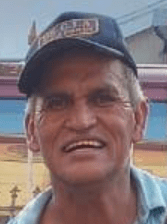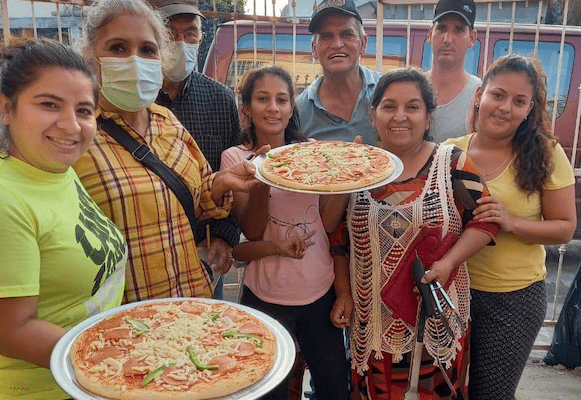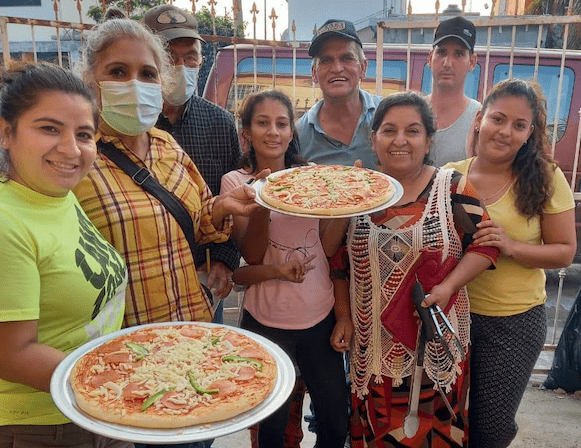It takes about equal parts courage and faith to minister to immigrants along the U.S.-Mexico border.
At least it does for Lorenzo Ortiz, a Texan from Laredo who operates feeding ministries and shelters for migrants across the Rio Grande River in Nuevo Laredo and in Saltillo, almost 200 miles farther south.

Lorenzo Ortiz
Ortiz, who works in an environment rife with government corruption, drug cartels and gut-wrenching poverty, is routinely praised by U.S.-based partners like Fellowship Southwest for the creativity and grit he displays in helping thousands of migrants through his El Buen Samaritano Migrante ministry.
The work routinely puts him face-to-face with some of the most desperate, hungry and broken refugees in the world. Ortiz said he was once daunted by those challenges until he weighed them against the teachings of Scripture.
“I read the Bible and I believe it, but courage comes when I start living it,” he said. “The Bible tells us if we try to save our lives, we are going to lose our lives.”
The latest manifestation of faith-infused courage for Ortiz occurred earlier this month when his ministry opened a new shelter in Nuevo Laredo to replace a smaller, crowded facility. The move brings his shelter operation to two in that city and one in Saltillo.
This kind of faith also can draw unwanted attention from the cartels, he said. “That is among the fears we have to deal with by trusting God and his word.”
And yet, that kind of faith, sweat and courage is common among the pastors and ministries serving immigrants and refugees along the border, said Marv Knox, field coordinator for Fellowship Southwest, the Cooperative Baptist Fellowship’s multicultural ministry in the region.
The network partners with Ortiz and a number of other “really scrappy pastors” serving along the border and guided by the gospel’s promise that whatever is done to “the least of these” is also done to Christ, Knox said.
“I think of Matthew 25 multiple times a week when I’m working with these pastors and their people,” he said. “They serve the most vulnerable people in North America. Their whole thing is to feed them and protect them from the cartels, from the elements and from COVID.”
Like many of those ministers, Ortiz has become known in the area as a caring, self-sacrificing minister who answers his calling with an entrepreneurial flare, Knox said.
His creative approach to ministry garnered media attention in September with the opening of Good Samaritan Pizza in Nuevo Laredo. A brick layer by trade, Ortiz built pizza ovens for migrants to operate and earn money while waiting for their asylum cases to be heard in the U.S.
And the operation has helped ease tensions with cartel representatives who are given free pizza, Knox said.
Fellowship Southwest and other religious groups, including Catholic Charities, recently purchased Ortiz a newer van to use to deliver food, supplies and to transport migrants.
“We have also provided operational funds, but we are not the only ones because he is quite a charismatic networker,” Knox said.
The new Nuevo Laredo shelter also is a remarkable achievement in the midst of a pandemic and government bureaucracy. “He’s quite the entrepreneur to be able to land this facility,” Knox explained.
But getting to that point took time for Ortiz, who started working with immigrants in a limited way when a wave of Cuban refugees were trying to enter the U.S. in 2017.
“I didn’t want to get into that because I knew that if I saw the need, I wouldn’t be able to resist getting more involved.”
“There was a ministry inviting me to take food across. I didn’t want to get into that because I knew that if I saw the need, I wouldn’t be able to resist getting more involved,” Ortiz said.
Eventually he was asked to lead the effort, but he declined partly out of safety concerns. “I was scared of the shootings and the fighting and the cartels.”
But on a subsequent visit to Mexico, Ortiz witnessed mothers and their children sleeping in the streets. It was more than he could bear. “Their need became bigger than my fear. When I saw that, I couldn’t say no after standing on the top of vans talking to migrants, providing them with food and praying with them.”
Since then, the nationalities coming through his shelters have widened on occasion to include refugees from Uzbekistan, Africa, Central and South America, China and Russia, he said. The migrant caravans were the focus in 2018, and currently the effort is to help asylum seekers the Trump administration has forced to stay in Mexico to await hearings.
“These are the people who often end up in the cartels’ hands as victims of kidnapping and extortion,” he explained.
But there has been some progress between Ortiz’s ministry and the cartels, who have witnessed the positive impact of the feeding programs and shelters.
“The relationship with the cartels is improving. They respect us because they know what we do,” Ortiz said. “And they treat us with respect — up to a certain point.”


